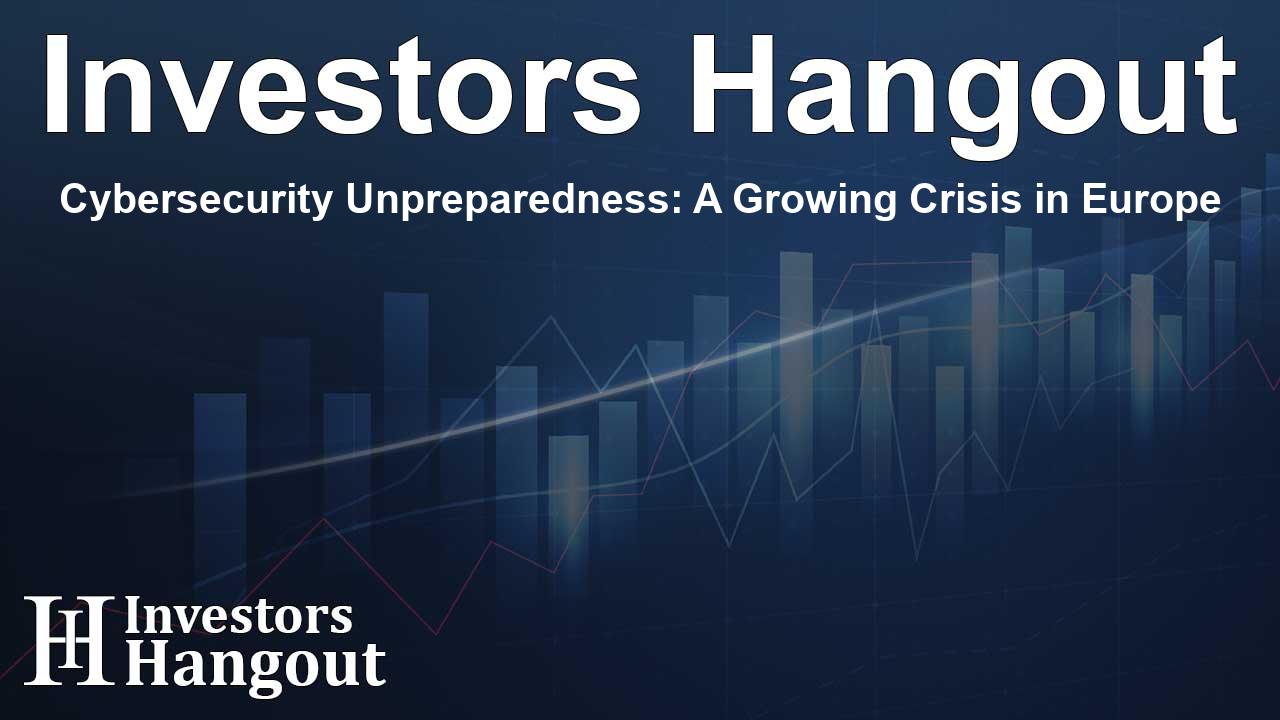Cybersecurity Unpreparedness: A Growing Crisis in Europe

Cybersecurity Teams Overwhelmed and Understaffed
Recent findings reveal that cybersecurity teams across Europe are facing unprecedented stress, with a staggering 61% of professionals indicating that their organizations are understaffed. Additionally, more than half of the respondents, specifically 52%, claim that budgets allocated for cybersecurity are inadequate. This situation signals a critical need for organizations to reassess their resources and strategies in the face of increasing cyber threats.
The Rising Stress Levels Among Cybersecurity Professionals
As the threat landscape becomes more complex, the repercussions extend beyond budgetary concerns. A significant 68% of cybersecurity professionals report experiencing heightened stress levels in their roles over the past five years. Alarmingly, 79% attribute this increasing anxiety to the growing intricacy of cyber threats, which necessitates not only appropriate staffing but also the right skill sets to combat these issues.
Escalating Cyberattack Incidents
Cyberattacks continue to plague organizations, with 41% of respondents stating they are facing a higher volume of attacks compared to the previous year. Furthermore, 29% believe that the frequency of attacks remains constant. This persistent threat fosters a culture of fear and urgency within the cybersecurity teams, prompting organizations to evaluate their defenses and preparedness effectively.
Projections for Future Cyberattacks
With no signs of decline in cyber threats, 58% of professionals anticipate that their organization will likely experience a cyberattack in the upcoming year. This represents a notable 6% increase since the previous year, indicating an urgent call for organizations to bolster their cybersecurity measures. Investments in skilled personnel and advanced training programs become essential to mitigate potential long-term damage from inevitable attacks.
Why Cybersecurity Skills Matter
Interviewed experts emphasize that overcoming the current challenges requires a comprehensive understanding of the skills gap in the cybersecurity industry. Chris Dimitriadis, Chief Global Strategy Officer at ISACA, stresses the significance of addressing underfunding and staffing shortages in cybersecurity teams. He highlights, "Without strong, skilled teams, the security resilience of entire systems is at risk, potentially leaving critical infrastructure vulnerable to attacks."
The Importance of Soft Skills in Cybersecurity
Interestingly, the shortage of soft skills among cybersecurity personnel is a key concern. A notable 52% of surveyed professionals indicate a gap in essential soft skills, particularly in communication (54%) and problem-solving abilities (53%). This insight underlies the necessity for organizations to focus not just on technical prowess but also on cultivating a diverse set of skills that enhance team effectiveness in addressing cyber threats.
Diversity in Cybersecurity Teams
According to Dimitriadis, the cybersecurity sector stands to gain from more diverse recruitment. This diversity can bring various perspectives and talents crucial for effective problem-solving in cybersecurity. By committing to training and certification programs, organizations can nurture individuals from various backgrounds and elevate the overall competencies of their teams.
Importance of Organizational Security Culture
Mike Mellor, Vice President of Security Engineering at Adobe, emphasizes that organizations must adopt secure authentication methods as a fundamental part of their defense strategy. To combat the increasing frequency and sophistication of cyberattacks, he argues for creating a deeper security culture among employees. Initiatives could include anti-phishing training and implementing zero-trust principles, ensuring that every part of the organization remains vigilant against potential threats.
Building a Trustworthy Digital Future
The need for a collaborative effort across all organizational levels has never been more crucial. As ISACA has been championing, the focus should go beyond merely responding to incidents. Instead, organizations should prioritize building a trustworthy and resilient digital future through strategic investments in cybersecurity resources and personnel. This proactive approach can pave the way for enduring success amidst the challenges posed by evolving cyber threats.
Frequently Asked Questions
What percentage of cybersecurity professionals feel understaffed?
61% of European cybersecurity professionals feel that their organization's cybersecurity team is understaffed.
How many professionals believe their cybersecurity budget is insufficient?
52% of respondents believe that their organization's cybersecurity budget is underfunded.
What stress levels are reported by cybersecurity professionals?
68% of cybersecurity professionals report that their roles have become more stressful in recent years.
How many professionals experienced an increase in cyberattacks?
41% of respondents reported experiencing more cyberattacks compared to a year ago.
Which soft skills are lacking among cybersecurity professionals?
52% indicate a lack of soft skills, particularly in communication and problem-solving skills.
About Investors Hangout
Investors Hangout is a leading online stock forum for financial discussion and learning, offering a wide range of free tools and resources. It draws in traders of all levels, who exchange market knowledge, investigate trading tactics, and keep an eye on industry developments in real time. Featuring financial articles, stock message boards, quotes, charts, company profiles, and live news updates. Through cooperative learning and a wealth of informational resources, it helps users from novices creating their first portfolios to experts honing their techniques. Join Investors Hangout today: https://investorshangout.com/
Disclaimer: The content of this article is solely for general informational purposes only; it does not represent legal, financial, or investment advice. Investors Hangout does not offer financial advice; the author is not a licensed financial advisor. Consult a qualified advisor before making any financial or investment decisions based on this article. The author's interpretation of publicly available data shapes the opinions presented here; as a result, they should not be taken as advice to purchase, sell, or hold any securities mentioned or any other investments. The author does not guarantee the accuracy, completeness, or timeliness of any material, providing it "as is." Information and market conditions may change; past performance is not indicative of future outcomes. If any of the material offered here is inaccurate, please contact us for corrections.